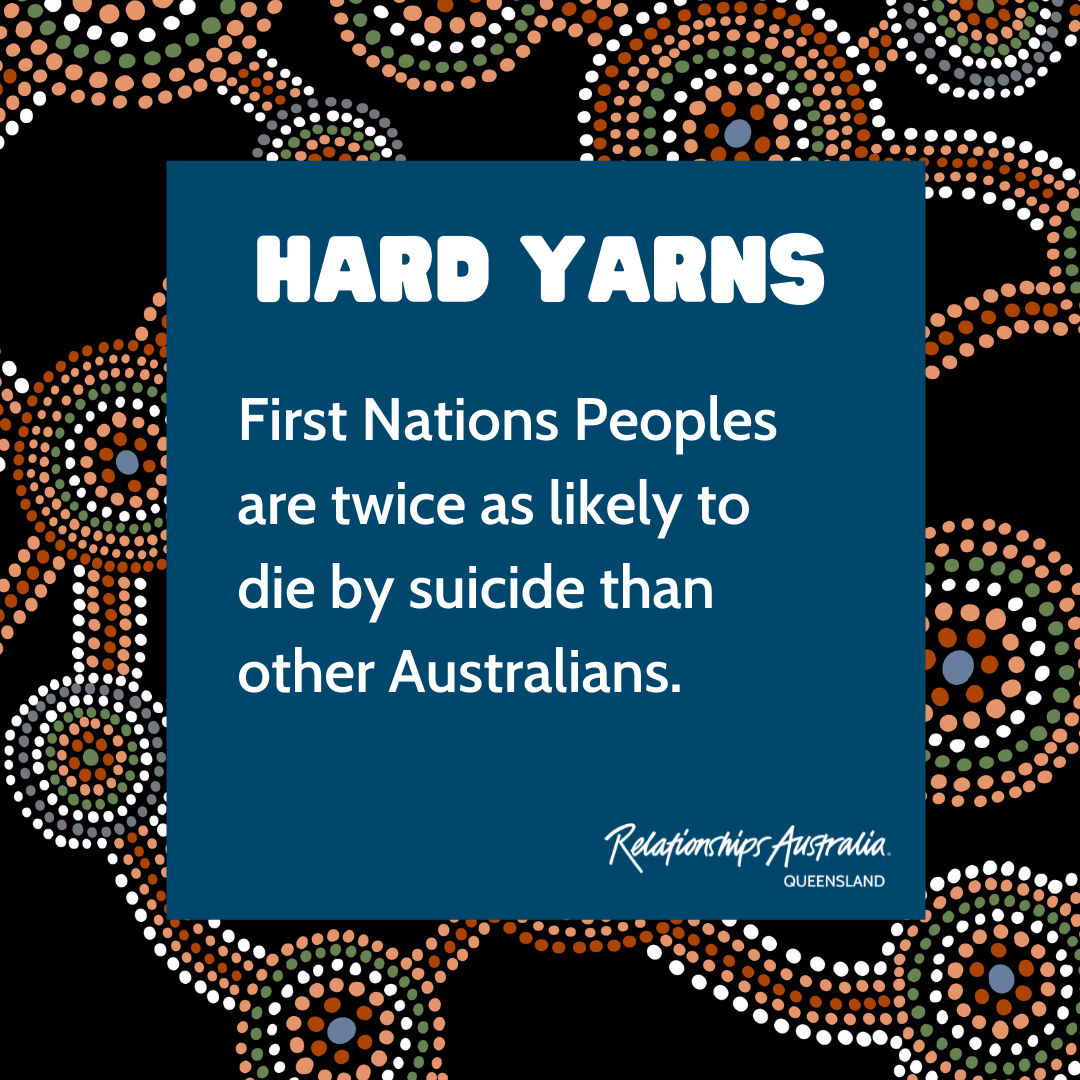All posts
Hard Yarns: Suicide and Mental Illness
We’re aware this content may cause distress for some people. We encourage you to seek trauma-informed and culturally appropriate support from a trusted professional. Readers are advised to hold a trauma-informed approach through any sharing of materials on this page. Lifeline: 13 11 1413YARN: 13 92 76 The Commonwealth Government recognises that First Nations […]


We’re aware this content may cause distress for some people. We encourage you to seek trauma-informed and culturally appropriate support from a trusted professional.
Readers are advised to hold a trauma-informed approach through any sharing of materials on this page.
Lifeline: 13 11 14
13YARN: 13 92 76
The Commonwealth Government recognises that First Nations Peoples are nearly three times more likely to be psychologically distressed than other Australians, and twice as likely to die by suicide.
Some common contributing factors include:
- Systemic racism
- Discrimination
- Disadvantage (e.g. poverty, homelessness, chronic illness, disability)
- Continuing experience off loss from incarceration, illness, and premature deaths of family members
- Generational trauma and grief due to the past systematic removal of children and destruction of communities.
“Suicide was unknown to Aboriginal people prior to invasion. Appalling living conditions and past traumas have led to a suicide rate that by far exceeds that of non-Aboriginal people.” – Creative Spirits.
Beyond Blue’s ‘Invisible Discriminator’ campaign highlights the impact of racism on the social and emotional wellbeing of First Nations Peoples: The Invisible Discriminator – Beyond Blue
The research found just over one third of First Nations persons aged 15 years and over felt they had been treated unfairly at least once in the previous year due to their race, and up to four out of five First Nations persons regularly experienced racism.
It also found a ‘dose’ effect: the risk of high or very high levels of psychological distress increases as the volume of racism increases. Subtle or ‘casual’ racism can be just as harmful as more obvious forms.
The National Indigenous Australians Agency (NIAA) has invested $1.8 million in a new First Nations suicide prevention data project to help provide a more complete picture of this complex issue.
The project, due for completion in June 2022, is being delivered by the Australian Institute of Health and Welfare (AIHW) and aims to help focus the Government’s efforts to ensure that suicide prevention initiatives and services can be more targeted to communities and individuals most at risk.
You can read more about the project here: Harnessing data for more targeted suicide prevention initiatives | National Indigenous Australians Agency
Earlier this year, Lifeline announced the launch of 13YARN, the first national crisis support service for First Nations Peoples, managed by First Nations Peoples.
If you or someone you know need support, you can connect with 13YARN on 13 92 76 (24 hours/7 days) and talk with a First Nations Crisis Supporter.
Thirrili offers Indigenous Suicide Postvention Services to support individuals, families, and communities affected by suicide or other significant trauma.
A Postvention Advocate can be contacted 24/7 by calling 1800 805 801.
RAQ stands with First Nations staff, clients, and communities who have been impacted by transgenerational trauma and continue to experience structural and systemic cultural bias and racism.
We recognise First Nations Peoples’ right to self-determination and that they are working to transform their lives.
We acknowledge the generosity of First Nations Peoples as they continue to build upon their resilience and resourcefulness and endeavour to develop and maintain respectful relationships with all other Australians and international visitors on their Lands.
Back to all posts